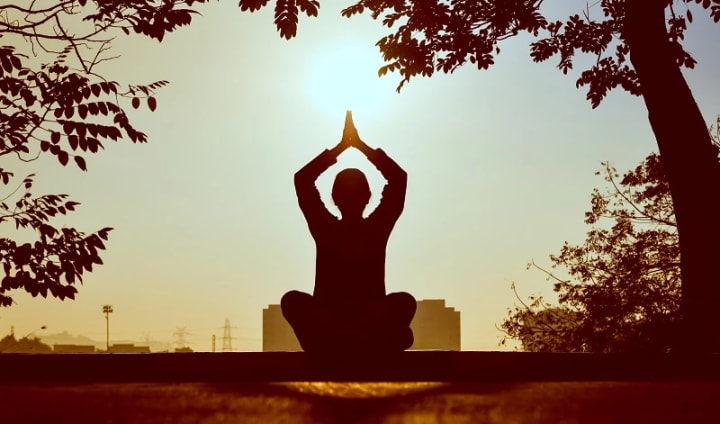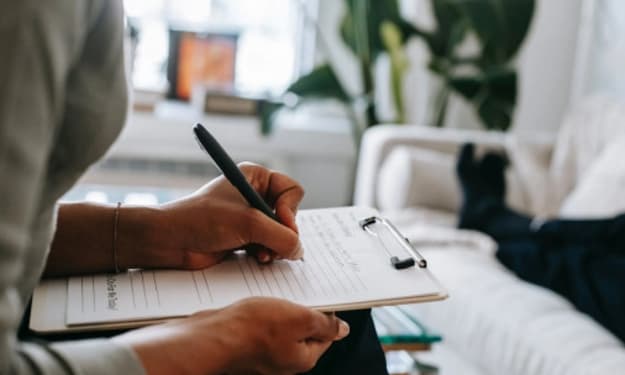The false antidotes for anxiety: what you have never been told
A reflection on the mentality from which we should face anxiety in our lives.

We live fast and look for compensatory solutions ; then we resort to yoga, meditation and other times to psychotropic drugs.
But... Why don't we free ourselves from high anxiety? Well, it is clear that there are healthy practices but often they work only as an antidote . I'll tell you why.
Anxiety as a social phenomenon
Today we live in the age of speed, without stopping to see what happens inside us. The Spanish Medicines Agency (AEMPS) confirms that 11% of the Spanish population consumes anxiolytics . So many other people pull antidotes looking for a short-term solution to mitigate anxiety and stress. There are a number of recommendations to reduce anxiety. We tend to look for external answers and compensatory practices to mitigate the consequences of uncomfortable anxiety. But, by the way, this is not the way and I will tell you what you have never been told.
Maybe you're interested: "Mental health: definition and characteristics according to psychology"
The fallacy of fighting anxiety as the great enemy
When we feel high anxiety we tend to think that we need more time to rest, a vacation, yoga or meditation . We often start looking for a series of tips to "combat anxiety" just like an enemy and find some actions that seem like the perfect antidote:
- Practice relaxation exercises: mindfulness, meditation, breathing, yoga.
- Consider natural remedies: supplements, teas, herbs, oils.
- Diets with special nutrients.
- Light a candle and relax.
- Spending time outdoors, with your friends, with a pet.
- Get a body massage, a spa day.
- Take a weekend break, a vacation, sleep longer.

We seek how to relieve anxiety, reduce it, calm it, face it, control it and even fight it to eliminate it. So with great enthusiasm we start with new routines : yoga classes, a new meditation, etc.
However, we have to rush out of work to go to yoga class, we cannot concentrate on meditation because ideas burst into our heads, we light the candles but the mobile does not stop ringing. And there you say: I will have a stressful day so I will need to disconnect for at least an hour. Still, the anxiety remains high and you fight it to compensate. You sound familiar?
But have you realized that anxiety is the heightened tension in the body that tells you to make a change instead of fighting it like it's the real problem?
The practices that relax us are not good or bad in themselves. Later you will discover when they are an antidote and when a healthy habit.
Related article: "Acceptance and Commitment Therapy (ACT): principles and characteristics"
Why do we look for antidotes?
An antidote is something whose function is to counteract the effects of a toxin. Here I call antidotes to the practices we use to prevent the undesirable effects of toxic high anxiety .
Have you ever wondered why we look for almost magical answers so as not to suffer from high anxiety? I will give you some of the many possible answers:
- We are content to do something to combat the anxiety and free ourselves from guilt.
- We delude ourselves into thinking that we lead a healthy lifestyle and it reassures us
- It is difficult for us to look inside, to know ourselves and to know what we need.
- We seek more to compensate than to change the causes that generate anxiety.
- Because we look for recipes to follow and armed responses that are valid for everyone.
- Because we adopt the ideal of only being happy and rejecting unpleasant emotions.
- It is more difficult for us to build a craft lifestyle for ourselves.
So, we stick to the easy : follow a recipe, the advice, the new fashion, fight not to change. It also happens that it is easier for us to repair than to change. For example, we prefer to take a digestif after an excessive meal than to limit the amount you need to eat.
Therefore, everything we do to mitigate or repair is unfortunately a failed solution in the medium and long term .
Maybe you're interested: "Emotional management: 10 keys to master your emotions"
Healthy habit or antidote?
As we have said, the practices that relax us are not good or bad in themselves. Now you will discover when they are an antidote and when a healthy habit.
Now you may be wondering... How do you know if the yoga you are doing right now is an antidote or a healthy routine? For example, tell me if you run to class, if in class you think about what you have to do next, if you identify various sources of stress in your day. If the answer is yes, then yoga will be an antidote. Here, yoga is not bad because it at least mitigates anxiety, but it is not a cure and it is not an indicator of a good life.
Instead, if you take your time to go to yoga class, enjoy the journey, you focus on the activity. To this you add: proper time management, regulating demands, among other health indicators, here it is possible that yoga is part of a healthy life.
So, to know if it is a healthy habit or an antidote, the secret is revealed when you ask yourself these questions :
- For what you do?
- How do you do it?
- Is it part of a balanced lifestyle?
look for balance
When anxiety is very intense and lasts over time, we can get sick . There are various mental illnesses, from panic disorder to phobias or anxiety attacks. Diseases such as irritable colon, ulcers, among others, are also common.
So, look for balance in the area of your behaviors, your emotions and your actions so that anxiety is in healthy amounts . Keep in mind:
- Do not use an activity as an antidote because it is a failed solution. That same activity as part of a balanced life is health.
- Do not seek to mitigate anxiety or make its symptoms more bearable.
- Seek to make changes so that anxiety is in its proper measure as the engine of your actions.






Comments
There are no comments for this story
Be the first to respond and start the conversation.